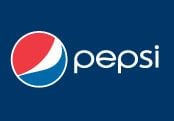Speaking to FoodNavigator-USA after securing GRAS status for its novel sucrose enhancer S9632, investor relations and corporate communications VP Gwen Rosenberg said a natural compound that provided a sweet taste had been identified.
She would not say how much sweeter it was than sucrose, but said it served to validate the firm’s proprietary screening approach for its natural sweeteners program, adding: “This was an important taste proof of concept to validate Senomyx's approach.”
She added: “Senomyx is using our proprietary technologies to screen plant-derived samples in an effort to discover novel natural high-potency sweeteners.
“This involves building a targeted natural-source library and using the Company’s proprietary technologies to identify potential new natural sweeteners and sweet flavor ingredients.”
The sweet taste program
Senomyx’s sucrose reduction portfolio includes three products all at different stages of commercialization, said Rosenberg.
“S9632 can restore the desired taste profile for foods and beverages wherein sucrose has been reduced such as powdered and liquid concentrate fruit-flavored soft drinks, ready-to-drink (RTD) and powdered coffee and tea, ready-to-drink and powdered dairy beverages, and alcoholic beverages." Tests show it can help firms cut sugar in products by up to 50%, she added.
“S6973 can be used to restore the desired taste profile for reduced sucrose products including RTD and powdered tea, coffee and milk products and is currently being commercialized by Firmenich.
“S617 is expected to be used to restore the desired taste profile for foods and beverages wherein either HFCS or sucrose has been reduced. S617, which is in development, appears to be effective in the same product categories as S9632, plus carbonated soft drinks.”
PepsiCo to focus on S617, which helps reduce sucrose and HFCS

The recent decision to reacquire the rights to S9632 for use soft drinks from PepsiCo would enable PepsiCo to focus instead on S617, which is Senomyx’s first ingredient that can help firms reduce HFCS and sucrose, she said.
“Senomyx and PepsiCo agreed to work together to advance S617 into the preliminary development phase, which includes the initial safety studies and other activities necessary to support regulatory filings in the US and elsewhere.
“The reacquisition allows Senomyx to commercialize S9632 via one or more third parties, and to potentially expand the total usage of S9632 and maximize its commercial potential.”
High-throughput biological screening techniques
Senomyx, which predicts it will post net losses of $8-10m on revenues of $30-33m in fiscal 2012, but has cash reserves of almost $50m, uses proprietary taste receptor-based technologies to develop novel flavor ingredients.
Building on work by scientists who have successfully cloned human taste receptors for sweet, bitter and umami tastes, Senomyx uses high-throughput biological screening techniques to evaluate millions of molecules to identify which substances bind to specific taste receptors.
